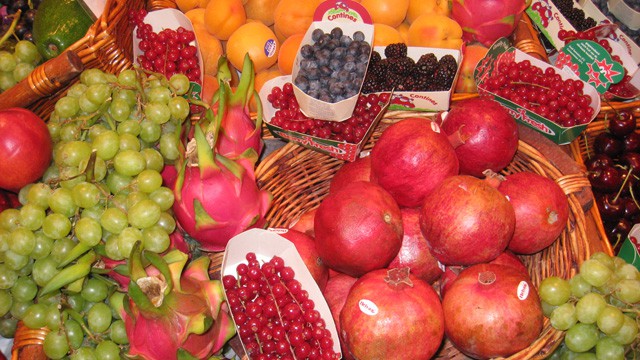Do You Trust Grocery Chains in Canada?
Published February 22, 2018 at 4:42 pm

Canadians have exceptionally strong relationships with grocery chains – despite allegations and admissions of some retailers’ participation in fixing bread prices for more than a decade – new research finds.
Roughly 86 per cent of Canadians say they’revery or somewhat satisfied with the grocery retailer they use the most, and 79 per cent trust their retailer, according to the Argyle Public Relationships Index, an annual study by Leger Research and Argyle Public Relationships.
When asked specifically about the bread price-fixing issue, 47 per cent say it hasn’t impacted their views. While 33 per cent say their view has worsened, only 9 per cent say it has worsened significantly.
Roughly 13 per cent say the issue has actually improved their opinion of their retailer.
Concerns were highest among customers over the age of 45, and among those who shop at Sobeys, Loblaws or FreshCo.
The survey is entirely independent of the grocery industry or any individual retailer, according to Argyle.
Canadians’ overall relationships with their grocers are stronger than those with brands in any category surveyed by Argyle and Leger since 2016 — including banks, credit cards, airlines, insurance companies, communications providers and professional sports teams.
Residents also think highly of grocery retailers as corporate citizens with 78 per cent agreeing their main grocer “takes care of people who are likely to shop there.”
In addition, 77 per cent believe their grocer is “committed to meeting my expectations,” and 69 per cent think the brand is “concerned about people like me.”
When asked, though, if they believe the public can “influence the decisions or direction” of their main grocer, only 45 per cent agree.
“While one-third of Canadians view their grocers more negatively after recent events, our relationships with these brands are strong and durable,” said Argyle CEO Daniel Tisch.
“The legacy of trust in the category suggests Canadians will give these relationships a second chance, allowing grocers to deal with executive misbehaviour and do the right thing. Still, given the strong correlation between relationships, sales and recommendations, brands need to take great care of their ‘public relationships.'”
Public relations research suggests there are six dimensions of relationships between brands and their publics: trust; satisfaction; perceived commitment to meet expectations; caring for customers (“exchange relationship”); concern for people like me (“communal relationship”), and people’s perception of their ability to influence the brand.
The Argyle Public Relationship Index averages public ratings of how the brand they know best in each sector performs on the six dimensions.
Among grocery retailers, the survey reveals similarly strong relationships between most major grocery retailers and their customers, with most clustered within the 70-74 range on a 100-point scale:
Sobeys
74
IGA
74
Walmart
73
Metro
73
Costco
72
Food Basics
72
FreshCo
72
Real Canadian Superstore
71
Loblaws
70
No Frills
68
The survey also shows that just over two-thirds of Canadians (67 per cent) are interested in having relationships with the brands they buy and the service providers with which they do business, down from 73 per cent a year ago.
Meanwhile, 79 per cent are more likely to do business with a brand that builds a relationship with them, and 80 per cent are more likely to recommend the brand to their friends.
“In two years of working with Argyle on this research, it’s clear that the health of a company’s relationships with the public correlates strongly to the health of its brand,” said Leger’s vice- president of communications and public affairs Lisa Covens.
“The grocery category has done a good job looking after its customers over the years, and that can help affected retailers ride out the storm.”
insauga's Editorial Standards and Policies advertising





